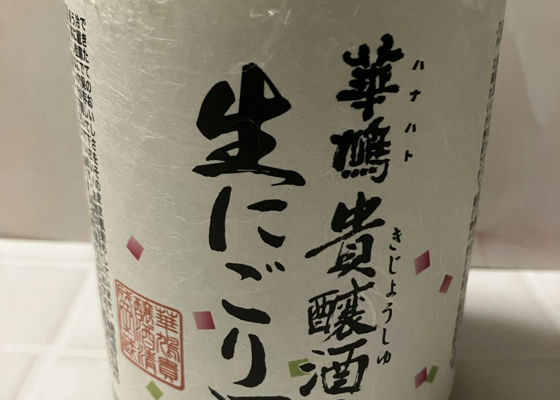
kei
It's a kijoshu, a nama-shu, and a nigori-shu... too many attributes, don't you think?
It's a kijo-zake, but it's also a raw sake, so it's a bit too much. The acidity and the sourness are assertive, and it is very much a kijo-zake! It is not so much sweet as it is kijo-zake.
It gives the impression of a sweet, thick doburoku rather than a kijoshu, which may not be what you expect from a kijoshu! It may not be what you expect from a kijoshu.
Of course, it is delicious!
Japanese>English